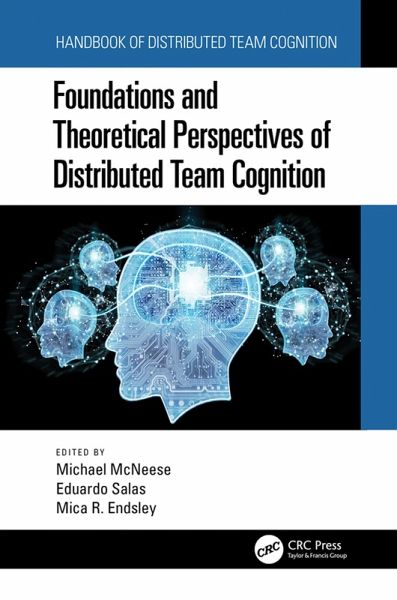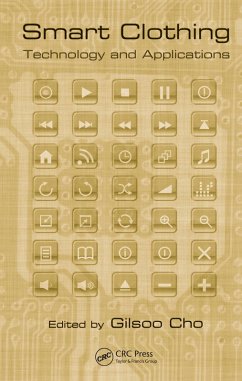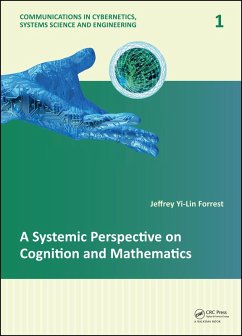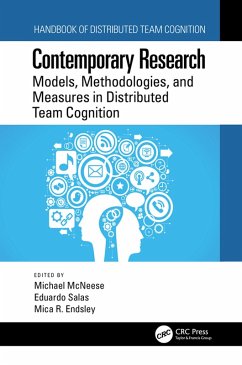
Foundations and Theoretical Perspectives of Distributed Team Cognition (eBook, PDF)
Versandkostenfrei!
Sofort per Download lieferbar
48,95 €
inkl. MwSt.
Weitere Ausgaben:

PAYBACK Punkte
24 °P sammeln!
The background and interwoven streams of team cognition and distributed cognition fermenting together has wielded new nuances of exploration, which continue to be relevant for a theoretical understanding of team phenomena.Foundations and Theoretical Perspectives of Distributed Teams Cognition looks at fundamentals, theoretical concepts, and how theory informs perspectives of thinking for distributed team cognition. The chapters yield a broad understanding of the nature of diverse thinking and insights into technologies, foundations, and theoretical perspectives of distributed team cognition.Fe...
The background and interwoven streams of team cognition and distributed cognition fermenting together has wielded new nuances of exploration, which continue to be relevant for a theoretical understanding of team phenomena.
Foundations and Theoretical Perspectives of Distributed Teams Cognition looks at fundamentals, theoretical concepts, and how theory informs perspectives of thinking for distributed team cognition. The chapters yield a broad understanding of the nature of diverse thinking and insights into technologies, foundations, and theoretical perspectives of distributed team cognition.
Features
Foundations and Theoretical Perspectives of Distributed Teams Cognition looks at fundamentals, theoretical concepts, and how theory informs perspectives of thinking for distributed team cognition. The chapters yield a broad understanding of the nature of diverse thinking and insights into technologies, foundations, and theoretical perspectives of distributed team cognition.
Features
- Generates historical patterns and significance that compose developmental trajectories
- Explains multiple perspectives that incorporate an interdisciplinary understanding that specifies diverse theories
- Identifies and develops particular challenges resident within team simulation studies and then illustrates research frameworks
- Highlights and reviews how team simulations are used to produce dynamic experimental results
- Investigates and studies research variables within distributed team cognition
Dieser Download kann aus rechtlichen Gründen nur mit Rechnungsadresse in A, B, BG, CY, CZ, D, DK, EW, E, FIN, F, GR, HR, H, IRL, I, LT, L, LR, M, NL, PL, P, R, S, SLO, SK ausgeliefert werden.













